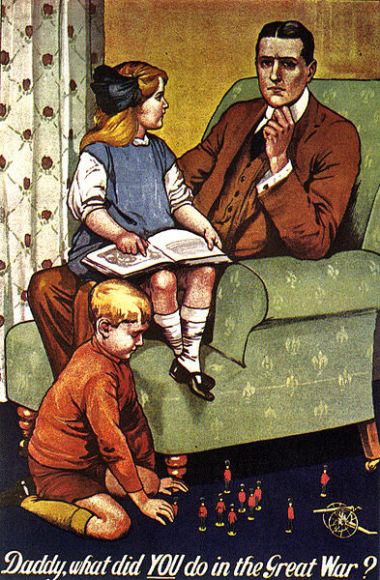Marching not to war

In this centenary year of remembrance for the Great War, there is one group that will be ignored or if remembered at all may be vilified. These were the people who believed that violence could not be justified on any grounds and refused to bear arms and fight.
They took the view that the state can never authorise the taking of human life, however pressing the circumstances. And many of them did so on Christian and religious grounds.
Even though Britain entered the War in 1914, it was two years before an Act was passed allowing the government to conscript all men aged between 18 and 41 years of age.
Until 1916, the government had relied on the Derby scheme, which permitted voluntary registration during times of war. However with so many casualties and too few volunteers, a more robust system was introduced. This Act exempted women from the battlefield. Married men, widowers with children, men serving in the Royal Navy, members of the clergy, and men working in a reserved occupation were also granted exemption.
However for the first time ever, the Act also recognised the rights of Conscientious Objectors (COs) and created a system of judicial tribunals where men could appeal against conscription on the grounds of conscience. Many COs belonged to Christian groups, drawn largely from the ranks of the Quakers, Plymouth Brethren, Jehovah's Witnesses and Christadelphians.
A smaller representation came from the mainstream non-conformist denominations, notably the Baptists and Methodists. It seems however that the established Churches of Scotland, Wales and Ireland supported the War as did the majority of the other denominations.
Britain was virtually alone in recognising the rights of COs and this clause was seen as a major coup for the No Conscription Fellowship and the Fellowship of Reconciliation. The latter was a Christian ecumenical movement which had long campaigned for such recognition.
The Fellowship of Reconciliation arose out of a friendship between a German Lutheran and English Quaker. Friedrich Siegmund-Schultz and Henry Theodore Hodgkin met at an ecumenical conference in Switzerland that was disrupted by the onset of war.
Before leaving they pledged to do all they could to work towards peace even in times of conflict. Siegmund-Schultz is reported to have said to Hodgkin: "Whatever happens, nothing is changed between us. We are one in Christ and can never be at war."
Hodgkin returned to Britain and the remainder of 1914 was spent campaigning for the rights of men who refused to bear arms on religious and moral grounds. This culminated in a conference in Cambridge in December that year which led to the founding of the Fellowship of Reconciliation.
The conference made a series of five declarations based on the incompatibility of war with the love of God. The third declaration gave the basis of conscientious objection: "That, therefore as Christians, we are forbidden to wage war, and that our loyalty to our country, to humanity, to the Church universal, and to Jesus Christ, our Lord and Master, calls us instead to a life of service for the enthronement of Love in personal, social, commercial and national life."
By the end of the war nearly 17,000 men had registered as COs. Although successful in their legal appeals, this was a despised group. Over 745,000 men fell on foreign fields and pacifists were regarded as traitors by many and they and their families suffered verbal and sometimes physical abuse during and after the war.
But they stood their ground, refusing to be taken in by the government's relentlessly jingoistic propaganda. And on the basis that the Kingdom of God cannot be drafted to fight for the kingdom of this world, they turned the other cheek. What would you do?











